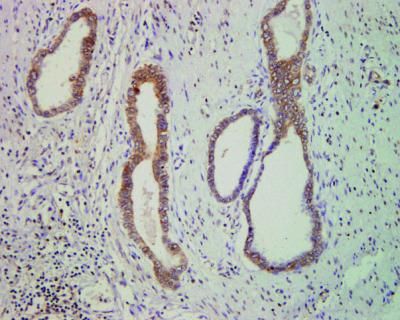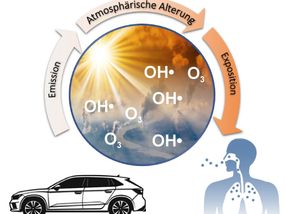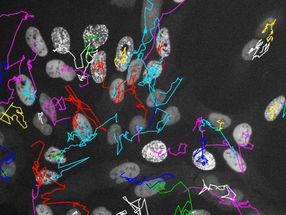FSU researcher identifies protein with promise for cancer therapy
In the second part of his lab's recent one-two punch, Florida State University researcher Daniel Kaplan said he has solved a cell division mystery in a way that will intrigue the makers of cancer-fighting drugs.
The key, said Kaplan, a College of Medicine Department of Biomedical Sciences researcher, is a protein called Treslin.
"It can target cancer cells," he said. "Most chemotherapy also targets rapidly dividing normal cells, but this seems to have promise for not doing that. Drug companies are going to be excited."
"We had tried to reconstitute the chemical modification step in our lab," Kaplan said, "but we always had a weak reaction. Dozens of other labs published this kind of work, and it was always weak. Always in the back of my mind I was saying, 'Maybe something's missing.' It occurred to me that there must be some kind of activator. So we started trying different proteins."
Eventually they singled out Treslin. Treslin not only stimulates the chemical modification of the helicase, thereby activating it, but also assembles the helicase in preparation for cell division. Since cancer is the unregulated division of cells, knowing how to stop the division process is crucial to halting cancer.
"We think this is really important," Kaplan said, "because now we can take this purified Treslin and the helicase, put them in a tube and watch the chemical modification occur. Then we can add small molecule inhibitors to see if we can inhibit that. That should stop activation of the helicase. That should stop the cancer cells from dividing. You kill cancer cells but not normal cells."
Original publication
Other news from the department science

Get the life science industry in your inbox
By submitting this form you agree that LUMITOS AG will send you the newsletter(s) selected above by email. Your data will not be passed on to third parties. Your data will be stored and processed in accordance with our data protection regulations. LUMITOS may contact you by email for the purpose of advertising or market and opinion surveys. You can revoke your consent at any time without giving reasons to LUMITOS AG, Ernst-Augustin-Str. 2, 12489 Berlin, Germany or by e-mail at revoke@lumitos.com with effect for the future. In addition, each email contains a link to unsubscribe from the corresponding newsletter.






















































